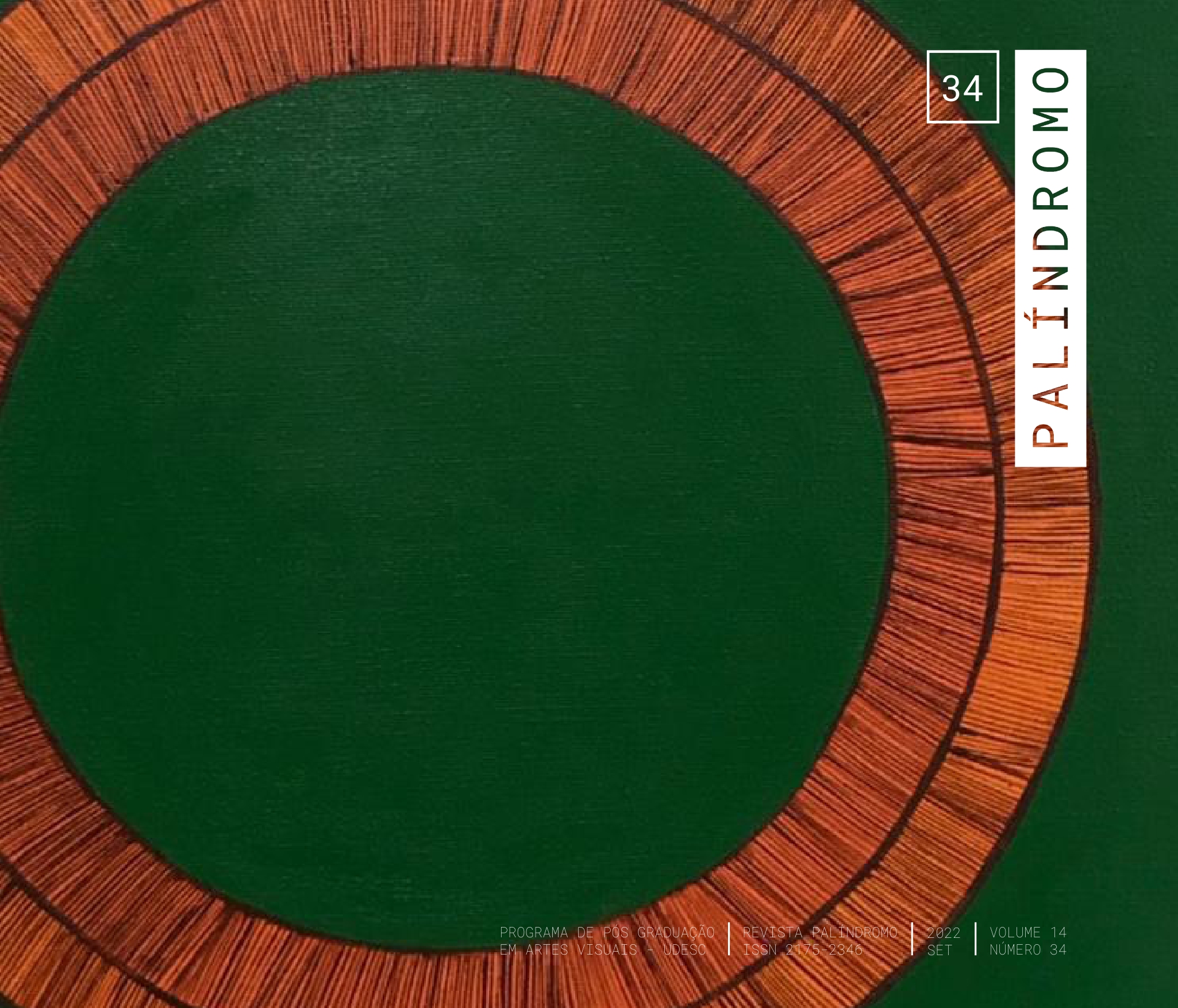Del paladar a lo potyguês: la transtemporalidad de la lengua
DOI:
https://doi.org/10.5965/2175234614342022035Palabras clave:
Gusto, Potyguês, Lengua , Hora de soñarResumen
Si la lengua es fascista, puesto que fuerza a decir (BARTHES, 2013), ¿existen otras formas de usar la lengua? La lengua, aquí, es la que dice, que habla, pero también es la que saborea y manifiesta. Estamos hablando (de) dos lenguas y un manifiesto contra el borradura de muchos otros. El idioma oficial de Brasil, el portugués, una marca colonial que fuerza a decirlo así: en portugués; la lengua del gusto, la que gusta y saborea la comida; y, finalmente, el Potyguês presentados por Juão Nyn (2020) como manifiesto de lo que es posible crear entre ellos. La vocal cardíaca “y” reanuda un sonido sagrado borrado por el idioma oficial en el momento en que los saberes culinarios transformados en sabores culinarios comunican recuerdos y nos reconectan con el tiempo de los sueños. Ya sea mediante de la evocación de cosmogonías, ya sea mediante de la evocación de la memoria, ambas proponen otras formas de (des)hacer la lengua. Para esta receta: saberes ancestrales, boca, dientes y sonido. Los mordiscos de un pasado colonial resuenan en otras formas de hacer y (sub)vertir la lengua.
Descargas
Citas
APYKÁ, Luã. Curso de Tupi-Guarani-Nhandewá: escrita. Peruíbe: Luã Apyká, 2021.
BARTHES, Roland. Aula: aula inaugural da cadeira de semiologia literária do Colégio de França, pronunciada dia 7 de janeiro de 1977. São Paulo: Cultrix, 2013.
BONA, Dénètem Touam. Cosmopoéticas do refúgio. Florianópolis: Cultura e Bárbarie, 2020. Tradução de: Milena P. Duchiade.
EVARISTO, Conceição. Gênero e Etnia: uma escre(vivência) de dupla face. Mulheres no Mundo: etnia, marginalidade e diáspora. João Pessoa: Ideia, 2005, p. 1 -14.
FINAZZI-AGRÒ, E. A invenção da ilha. Tópica literária e topologia imaginária na descoberta do Brasil. Remate de Males, Campinas, SP, v. 13, p. 93–103, 2012. DOI: 10.20396/remate.v13i0.8636199. Disponível em: https://periodicos.sbu.unicamp.br/ojs/index.php/remate/article/view/8636199. Acesso em: 14 set. 2021.
GALVÃO, Joyce. Ingredientes para uma confeitaria brasileira. São Paulo: Companhia das Letras, 2021..
GONZALEZ, Lélia. Por um Feminismo Afro-Latino-Americano: Ensaios, Intervenções e Diálogos. Rio Janeiro: Zaharm 2020,
GOMES, Laura Graziela; BARBOSA, Livia. Culinária de papel. Estudos históricos, Rio de Janeiro, n. 22, p. 3-23, jan-jun 2004.
GRAÚNA, Graça. Contrapontos da Literatura Indígena no Brasil. Belo Horizonte: Mazza, 2013.
KOPENAWA, Davi; ALBERT, Bruce. A queda do céu: palavras de um xamã yanomami. São Paulo: Companhia das Letras, 2015. Tradução de: Beatriz Perrone-Moisés.
KRENAK, Ailton. Ideias para adiar o fim do mundo. São Paulo: Companhia das Letras, 2019.
LUDMER, Josefina. Aqui América latina: uma especulação. 2. ed. Belo Horizonte: Editora Ufmg, 2013.
MICHAELSEN, Mariana Vogt. (N)o verso das receitas, uma página em branco: a escritura, a litura e a leitura de livros de receitas. Dissertação (mestrado em Literatura) – Universidade Federal de Santa Catarina. Florianópolis, 2022.
NYN, Juão. Tybyra: uma tragédia indígena brasileira. São Paulo: Selo Doburro, 2020.
RIBEIRO, Sidarta. O oráculo da noite: a história e a ciência do sonho. São Paulo: Companhia das Letras, 2019.
SMITH, Linda Tuhiwai. Decolonizando metodologias: pesquisa e povos indígenas. Curitiba: Editora Ufpr, 2019.
X, Barbara; TUPINAMBÁ, Moara. Piracaia: um manifesto vanguardista de indígenas antifuturistas. São Paulo: Sarau Ajuri de Makunaimi, 2021.
Descargas
Publicado
Cómo citar
Número
Sección
Licencia
Derechos de autor 2022 Mariana Vogt Michaelsen, Alessandra Guterres Deifeld

Esta obra está bajo una licencia internacional Creative Commons Atribución 4.0.
DECLARAÇÃO DE DIREITOS AUTORAIS
a. Os artigos publicados pela revista são de uso gratuito, destinados a aplicações acadêmicas e não comerciais. Todos os direitos autorais são atribuídos à revista. Os artigos cujos autores são identificados representam a expressão do ponto de vista de seus autores e não a posição oficial da Revista Palíndromo. O (s) autor (es) compromete-se sempre que publicar material referente ao artigo publicado no Palíndromo mencionar esta publicação da seguinte forma:
Este artigo foi publicado originalmente pela revista Palíndromo em seu volume (coloque o volume), número (coloque o número) no ano de (coloque o ano) e pode ser acessado em: http://www.revistas.udesc.br/index.php/palindromo
b. Plágio, em todas as suas formas, constitui um comportamento antiético de publicação e é inaceitável. A revista Palíndromo utiliza o software iThenticate de controle de similaridade


